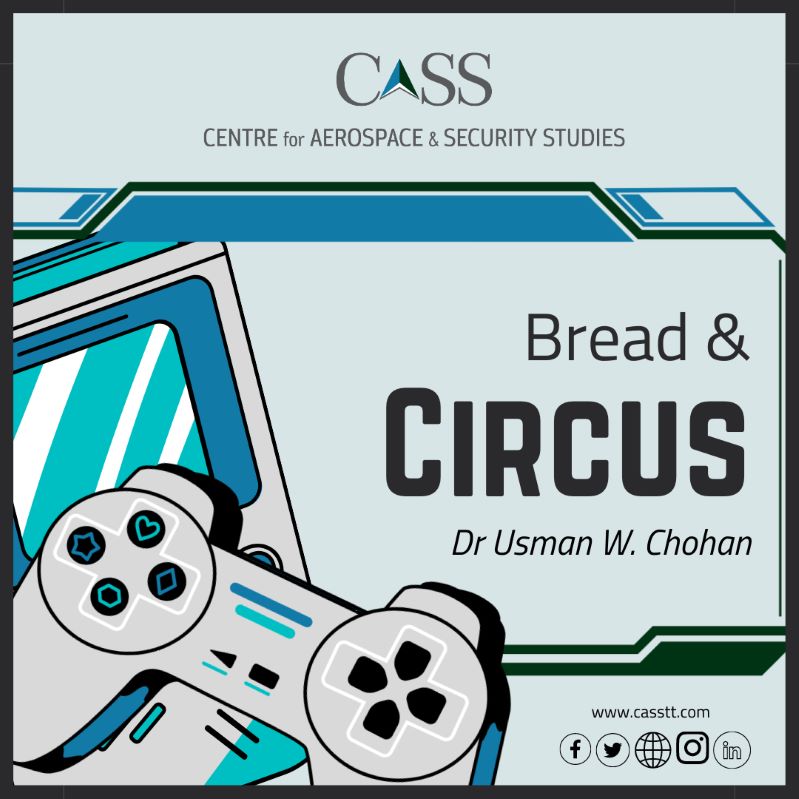At the apogee of their empire, it was argued that the Romans adhered to a simple point objective in governance: the bread and the circus. Panem et Circenses, as the poet Juvenal called the doctrine, meant that as long as the people had bread, there would be scant occasion for a well-fed population to beget strife, and as long as they were kept entertained, they would seldom venture into the contestation of power. The quality of the bread and circus were not as much a concern as was their constant provision. The major entertainment venue of gladiatorial brutality seems in hindsight a very churlish and brutish affair, but so too does the diet of the plebeian Roman. It didn’t matter, as long as it was regularly there.
Looking at the same precepts in a contemporary context, I fear that we are falling short on both fronts. Our bread is costly, and the novel coronavirus has exacerbated the public’s despair in terms of food insecurity. That said, the government has taken extraordinary measures to provide relief despite both resource constraints as well as entrenched private mafias in essential items (sugar, grain, etc.). However, when it comes to the circus, there is the worrying prospect that the massive digital platform of YouTube, with 2 billion users around the world, might be soon banned (for a second time) in the country. This is cause for alarm because it punishes “the medium rather than the message,” to paraphrase Marshall McLuhan.
In 2019, there was a 60% growth in Youtube watch-time in Pakistan, according to Farhan Qureshi, regional head at Google. 73% of the internet users in Pakistan are frequent visitors of YouTube, equating to 32.5 million people at the time. They are not simply ogling for smut, as some philistines would like to claim: the top 5 categories viewed by Pakistanis are sports, TV, comedy, travel, and news. Indeed, many YouTubers pursue their educational ambitions on a democratised platform, sitting in the world’s best-staffed and most-engaging visual classrooms to broaden their intellectual horizons – for free. In fact, Pakistan’s leading think tanks, such as the Centre for Aerospace & Security Studies, actively disseminate their research through webinars uploaded on Youtube.
From an economic perspective, punitive measures against YouTube would be worrisome not just as a function of the proverbial circus, but also as a function of bread. Countless Pakistanis now earn a living, directly or indirectly, through YouTube content creation. While there were only eight Pakistani channels with a subscriber base of 1 lakh users, today that number exceeds 1000 different channels. The democratisation of access to information can be seen not just in the fact that 80% of online millennials have access to by YouTube, but also to the fact that one third of YouTube usage in Pakistan is from rural areas. Those rural Pakistanis, bereft from the traditional modes of access and communication, have a wide window into the world is a celebratory feat.
YouTube is also not an isolationist activity that youngsters pursue it when they should rather be studying or sleeping. In fact, according to Google data from 2018, 63% of YouTube users in Pakistan often watch YouTube with friends and family, reflecting the collectivist precepts of our society and the premium we ascribe to communitarian life even in the digital age. From a microeconomic perspective, YouTube also helps with efficiency through price discovery, since 60% of Pakistani users believe watching YouTube videos helps them decide which products or brands to buy, and 43% of users who use both YouTube and television believe that YouTube advertisements are more relevant than those on TV.
At the macroeconomic level, YouTube empowers Pakistanis who would otherwise be excluded from traditional modes of capital formation to thrive. As an example, despite Pakistan having one of the lowest rates of women entrepreneurs in the world, Pakistani women are succeeding by leaps and bounds in the digital economy. The largest Pakistani YouTube channel, Kitchen with Amna, produces wholesome culinary content and has 3.5 million subscribers as of now. In other words, in the realm of the circus, the leading show is on the bread. In terms of Pakistan’s soft power development, one of the policy priorities highlighted by the government has been tourism promotion. What better vehicle is there to promote the beauty of Pakistan than Youtube with two billion users? 80% of the world’s internet users have their own YouTube account, meaning that the single greatest vehicle for promoting our touristic potential, not to mention national narrative and worldview, is going to be YouTube. Is this really what we are thinking of banning?
My forthcoming book, Public Managers in the Digital Economy (Routledge), examines the value creation potential for public administration in the digital age. Yet, I see that some public managers are willing to do away with the digital economy altogether. Then what value is to be created for the public? Not only are they struggling to provide the bread, they are also threatening to smash the circus.
–The writer is the Director for Economics and National Affairs at the Centre for Aerospace and Security Studies (CASS). This article was first published in The Nation newspaper. He can be reached at cass.thinkers@gmail.com




